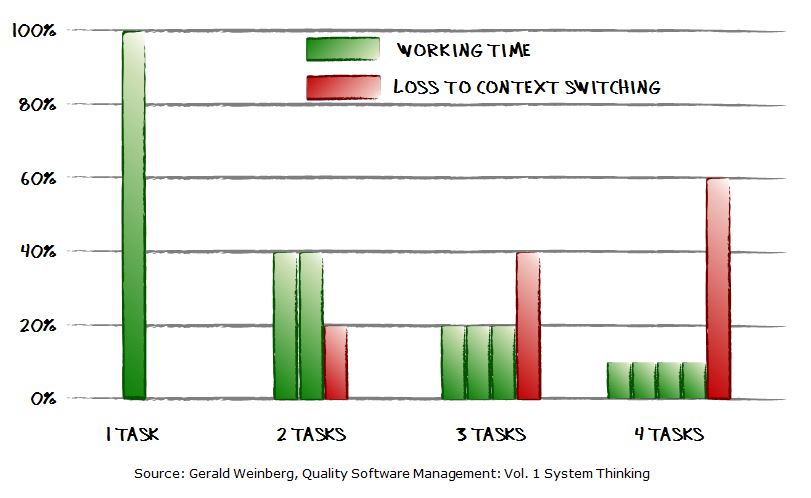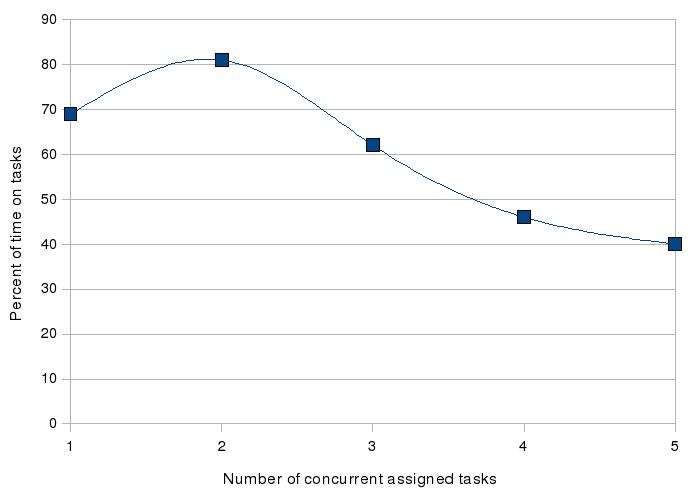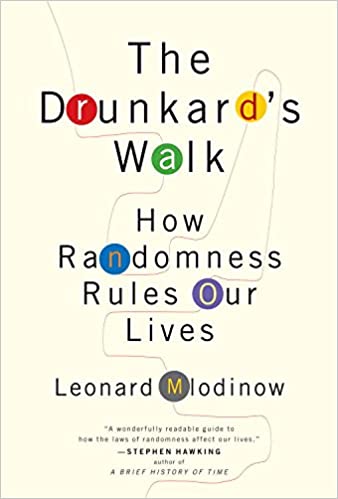Messages emoji auto-substitutions
While everybody on the internet seem to be concerned with how to turn off emoji auto-substitution in Messages, I’m quite fond of it. Here is the list of working shortcuts for emojis:
| emoji | meaning | shortcut |
|---|---|---|
| 😊 | Smile | :) :-) ^_^ |
| 😉 | Wink | ;) ;-) |
| 😟 | Sad | :( :-( |
| 😐 | Speachless | :- |
| 😕 | Annoyed | :/ :-/ |
| 😩 | Weary | D: |
| 😮 | Surprised | :o :-o |
| 😃 | Laughing | :D :-D |
| 😋 | Yummy | :d :-d |
| 😘 | Kiss | :* :-* |
| 😛 | Tongue | :p :-p |
| 😏 | Smirk | :> :-> |
| 😠 | Angry | >:o >:-o |
| 😎 | Cool | B) B-) |
| 😇 | Saint | 0:) 0:-0 |
| 😈 | Evil/Devil | >:) >:-) |
| 😶 | Mouthless | :x :-x |
| 😬 | Grimace | :! :-! |
| 😳 | Flushed/Blushing | :[ :-[ |
| 😜 | Drunk/Frolicking | %) %-) |
| 😖 | Uneasy | :S :-S |
| 😷 | Medical mask | :@ :-@ |
| ❤️ | Heart | <3 |
| 👍 | Yes | (y) |
| 👎 | No | (n) |
| 😺 | Cat face | :3 |
Multitasking in System Administration
Just a quick thought on multitasking in SA (or DevOps, if you prefer). There is a common knowledge that multitasking is bad, it hurts your performance, quality, and whatnot.
Here is a nice chart to illustrate the idea:

Obviously, the above is more of a rule of thumb and here is a nice summarisation. However, there was another study on the matter by Harward’s professors S.Wheelwright and K.Clark that draw slightly different picture:

What’s important here is that the percent of time on tasks or performance actually maximises at 2 concurrent tasks. This is actually much more in line with my personal observations. You can also argue that in the field of SA we often have tasks that require significant amount of “wait time” when you kick something off and then simply wait for it to complete, so the latter graph has even more sense.
Links: 17th May
He [Galton] even measured the life spans of sovereigns and clergymen, which, being similar to the lifespans of people in other professions, led him to conclude that prayer brought no benefit.
– Leonard Mlodinov
Mlodinov’s “The Drunkard’s Walk…” is a fantastically good book. I couldn’t pull myself away of it, I’d read it in the morning before the work starts and right after I wrap it up for a day. A captivating overview of mathematics of chance, randomness, and statistics put in a very comprehensible form and language, intertwined with amusing digressions into history of mathematical thought, it connects randomness with our everyday life. Scientific American’s comment reflect my feelings: “Delightfully entertaining”.
Recommend it wholeheartedly:

- Yet another confirmation that our sleep patterns are being confused by blue light emitted by handheld devices: To sleep, perchance? Screens before bedtime harm sleep.
- What makes it a war? Not every scrap involving armed groups in the same polity is a civil war: on that much the experts agree. That may be all they agree on, though.
- Standford’s paper on reasons for wars.
- And more importantly How to stop fighting? It is encouraging to learn that many leaders now realise that even small conflicts left to themselves might burst into overwhelming blaze, like with ISIS.
Technology
- A very handy github-hosted automatic page refresher, will update a given URL in an iframe at a specified interval.
- For those who seldom face a task of configuring SSL, here’s an SSL config generator for various web servers. The point is this generator gives you a config that matches current demands in terms of security, i.e. vulnerable cyphers would be disabled, etc.
- If you accidentally downloaded a huge file from an svn repo that you don’t want to keep in your working copy, you can remove and ignore it further on with:
svn update --set-depth exclude bigFolder D bigFolder- You can later re-enable the folder with
svn update --set-depthinfinity bigFolder
- You can later re-enable the folder with
- This has been sitting in my notes for a long time: why DNS root record cannot have CNAME and how to live with it: CloudFlare’s DNS flattening. Frankly, they should just add this bit into DNS specification.
- Bleep peer-to-peer instant messenger got released. It’s frustrating to see the industry failing at producing a modern advanced and convenient IM really. If Bleep is going to maintain (semi-)direct connections with your contact list, sending updates and notifications, that would dry your battery on mobile devices.
- Reminder for myself: iOS firmware downloads.
And finally: meetup.com is a very odd platform. I’ve joined it few months earlier cause we organised a group and now for some reason, meetup.com decided that I’m some sort of a fraudster or spammer, and limited my account so I virtually cannot do anything, neither send a message, nor edit my profile. After googling I found I’m not the only one suffering: Meetup automatic fraud systems are out of control. Support doesn’t seem to be cooperative at all with the only one suggestion: remove your existing account and register a new one. Well, thanks Meetup, I’ll remove my account; not sure I’ll be registering again though.
Links: 24th Oct
Computer Science is no more about computers than astronomy is about telescopes.
Let me start this post with two very powerful articles in The Economist:
- Philosopher kings. Business leaders would benefit from studying great writers. This resonates a lot with me, and is easily transposed onto politics. I can’t get rid of despair how shallow and primitive our politicians are en mass; all the more lame sound our journalists referring to them as ‘elite’.
- Wealth without workers, workers without wealth. The digital revolution is bringing sweeping change to labour markets in both rich and poor worlds. The overview of a silent revolution that is happening around us. Engaging parallels with two previous Industrial revolutions, opportunities, trends, and the role of IT knowledge in the future.
Technology
- Bedford’s law (here in Russian), something I was unknowingly bumping into before when trying to fairly evenly split the list of hostname. First thought of splitting by first character was obviously naive as hostnames tend to follow some patterns. Then I decided to calculate some hash function on the hostname and pick the first figure. I thought that would be fairly evenly distributed, but to my surprise it wasn’t. Now I have an explanation — Bedford’s law.
- On rpm-based system you can use following commands to restore file’s permissions and ownerships:
# rpm --setperms # rpm --setugids - To reserve a CPU core for some particular process and make the scheduler avoid placing other processes on that CPU you need to use cpusets. There is a generic tutorial here on shielding a CPU (Serge, thanks:), but it’s much more fun to use
csettool. Just look how cool it is in the examples on stackoverflow and in this tutorial.[zuul:cpuset-trunk]# cset shield -c 1-3 cset: --> activating shielding: cset: moving 176 tasks from root into system cpuset... [==================================================]% cset: "system" cpuset of CPUSPEC(0) with 176 tasks running cset: "user" cpuset of CPUSPEC(1-3) with 0 tasks running - Some handy information on editing with ed, an undeservedly underused tool these days
- A standard way to implement Redis sharding and (!) make Redis utilise multiple cores: twemproxy.
- Compact 100-line implementation of netcat in perl. Works perfectly in pair with
ssh ProxyCommand. - HTTP/2 is coming: RFC2616 is dead.
- In the light of recent security vulnerabilities, even more useful site with instructions on web-server encryption configuration: cipher.st
- Say ‘Hello’ to
hidepid=option in Linux; a way to hide processes from other users. - And as a titbit, shell niceties:
- Progress bars and spinners: here and here, my favourite is this:
# progress 30G 9G 30 # 30G [================>.................................] 30% (9G) - Best ever
pidtreeshell implementation (from superuser):#!/bin/bash pidtree() { echo -n $1 " " for _child in $(ps -o pid --no-headers --ppid $1); do echo -n $_child `pidtree $_child` " " done } ps f `pidtree 4378`
- Progress bars and spinners: here and here, my favourite is this:
English
- International Spelling Alphabet for reference. I do prefer ‘Yellow’ over ‘Yankee’, ‘Zebra’ over ‘Zulu’, and ‘Water’ over ‘Wiskey’. :-)
- Nice table of proverb equivalence in Russian and English
Links: 3th Jun
Writing is nature’s way of telling you how sloppy your thinking is.
Technology
- Shocking post-mortem from Joyent: operator mistake and a tool which reboots the whole datacenter without requesting additional confirmation.
- Defensive BASH programming — an excellent post on scripting techniques!
- Thinking for programmers by Leslie Lamport. The epigraph comes from this talk.
- The best expect script I found to execute commands on servers remotely via ssh. This is really handy when one does not have key-based authentication set up. The downside is that it’s slow, so one need to parallelise it if one has over few dozen of servers to crawl.
- ncf — CFEngine framework for small installations, runs in pure CFEngine language, to help structure your CFEngine policy and provide reusable, single purpose components distributed under the GPLv3 license.
- The same guys are behind the Rudder — web-driven, role-based solution for IT - Infrastructure Automation & Compliance.
- “Law of Murphy for devops: if thing can able go wrong, is mean is already wrong but you not have Nagios alert of it yet”. Therefore, don’t forget to monitor these things.
- Interesting stats on monitoring tools — Nagios is the king, Sensu and Zabbix have a large chunk of large deployments.
English
English:
- Hilarious story about why programming sucks. Careful and exact observations put in a lively and funny language. It definitely made my day!
- Quirks with pronunciation of some borrowed words:
Another word that the British Anglicized from French is harass and its related noun harassment. They shifted the accent to the first syllable, sounding like “harris.” The Americans preferred the French-style second-syllable stress, no doubt further encouraged by the double s. But the British style is becoming more popular with people who don’t want to sound like they’re saying “her ass” — sort of like how the British “urine-us” pronunciation of Uranus, based on the Latin and Greek stress pattern, is sometimes preferred by Americans who don’t like how the American say-it-like-it-looks version sounds like “your anus.”
- Stop new wordage? Never gonna happen. In defence of unnecessary words.
- Corporate speak — speaking strategically without a strategy.
As languages go, English is particularly extreme in differentiating between stressed and unstressed syllables; the stressed syllables play a disproportionately big role in making words identifiable, and because unstressed syllables are out of the spotlight, and don’t contribute much to the exact identity of words, it doesn’t really matter exactly what they sound like. For example, some people pronounce the first syllable of believe as /bɪ/, others as /bə/, and in fact it would often be hard to tell exactly which vowel sound is used. Even if you use a different one – if you say, for example, /bʊ/ or /be/ – the identity of the word will be clear; the important thing is to pronounce the stressed second syllable with a clear /iː/ vowel.
– From Macmillan Dictionary Blog
Other
- The story behind lavabit shut down.